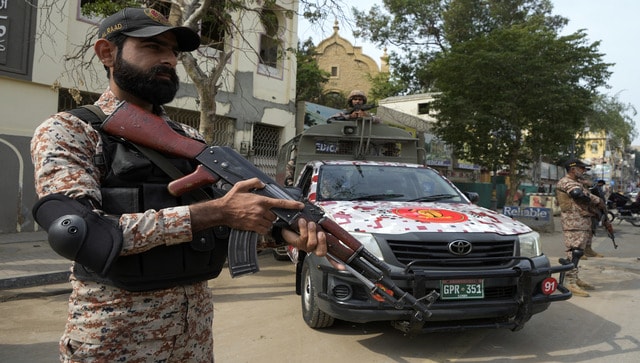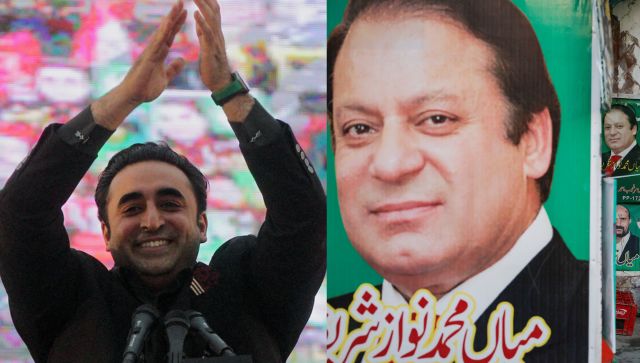Pakistan is going to polls today (8 February) to vote for the next national government. Its 127 million voters electors will cast their franchise to elect members to the national and provincial assemblies. The elections have put the spotlight on the country’s elite political dynasties. From Lahore to Sindh, certain influential families dominate Pakistan’s political landscape. Let’s take a closer look. A look at Pakistan’s dynastic politics Political power in Pakistan has often been concentrated in the hands of a select few from particular families over the years. The two main dynastic families of Pakistan are the Sharif clan of former Prime Minister Nawaz Sharif and the Bhutto family that has ruled the southern Sindh province for decades, noted Arab News. Both Nawaz Sharif and Bilawal Bhutto-Zardari, the scion of the Bhutto family, are vying for the post of prime minister in these general elections. During the 1990s, political power in the country shifted between Sharif’s Pakistan Muslim League-Nawaz (PML-N) and Bhutto’s Pakistan Peoples Party (PPP), apart from the periods of military rule. It was only in 2018 that cricketer-turned-politician Imran Khan came to power before being ousted in a no-confidence vote in 2022. [caption id=“attachment_13701922” align=“alignnone” width=“640”] Pakistan’s former Prime Minister Nawaz Sharif, center, and his daughter Maryam Nawaz, right, waves to their supporters as they arrive to address an election campaign rally in Hafizabad, Pakistan, 18 January 2024. AP[/caption] However, according to research by Dr Hassan Javid, a sociologist at the University of the Fraser Valley in Canada, 80 percent of Khan’s winning candidates in the 2018 elections in Punjab were from dynastic families, Arab News reported. Khan, who is in jail and barred from contesting these elections, was seen by young voters as a break from the political dynasties or military establishments that have been in power in Pakistan for most of its independent history. Dynastic families of Pakistan Nawaz Sharif, who is widely expected to become Pakistan’s PM for the fourth time with the blessings of the country’s military, comes from a wealthy business family from Punjab. He is fighting the elections from Lahore and Mansehra. His brother, former PM Shehbaz Sharif, is contesting from Lahore and Kasur. Nawaz Sharif’s daughter Maryam Nawaz has been fielded from Lahore, along with his nephew Hamza Shahbaz Sharif. Bilawal Bhutto Zardari, the son of slain PM Benazir Bhutto and former Pakistan president Asif Ali Zardari, is contesting from Sindh and Punjab. His party PPP has ruled Sindh thrice since 2008. This time, the PPP has fielded 191 candidates for the national and provincial assembly elections in the province. Of these, most of the candidates are from 12 prominent political families of Sindh, reported Arab News. PPP co-chairman Asif Ali Zardari is also in the race, while his sisters – Shaheed Benazirabad and Faryal Talpur – have also been given tickets. Ghaffar Khan’s family has clout in the Khyber Pakhtunkhwa region, with his son, Khan Abdul Wali Khan, and grandson, Asfandyar Wali, playing key roles, noted BNN Breaking. The family of Maulana Mufti Mehmood, the Khattars of Attock, the Mengals of Balochistan, the Bugtis and the Chaudhrys are some other significant regional players in Pakistan. In Balochistan, the country’s largest province, has been governed by families, or tribes, for decades. Out of the 442 candidates contesting the general elections from the province, a majority belong to tribal and well-established political backgrounds, reported Arab News. Why dynastic politics thrives Analysts believe dynastic politics flourishes in Pakistan due to a lack of democratic system within political parties. According to journalist Fazil Jamili, with only some dynasts dominating electoral politics, there is not much room for grassroots supporters of political parties who are “more connected and can better serve” the masses. “Consequently, it makes people dependent on the rich or the elite, who may not understand people’s problems as someone from among them might,” Jamili told Arab News. [caption id=“attachment_13701932” align=“alignnone” width=“640”]
 Paramilitary soldiers stand guard on the side of a road for security in Karachi, Pakistan, 7 February 2024. AP[/caption] Shahzeb Jillani, a journalist and political analyst, told Arab News that dynastic politics exists in much of South Asia. “It’s true in Pakistan as well. It seems to be more true in Sindh because you have one party running the province for last 15 years.” He said political parties depend on “electables“ – candidates with political and economic clout who have large vote banks – due to a lack of democratic culture in Pakistan. The role of Pakistan’s military also looms large. “Establishment’s political interference should end to stem dynastic politics from Pakistani society. Not only in Balochistan’s tribal society, the political dynasties ruling over the people in Sindh and Punjab provinces as well [are] based on community and ethnic-based politics," Dr Javid told Arab News. As per Jillani, “We haven’t been allowed to function as a democracy over the last 75 years. We had dictatorships, we had interference. And that has allowed families to become more deeply entrenched.” With inputs from agencies
Paramilitary soldiers stand guard on the side of a road for security in Karachi, Pakistan, 7 February 2024. AP[/caption] Shahzeb Jillani, a journalist and political analyst, told Arab News that dynastic politics exists in much of South Asia. “It’s true in Pakistan as well. It seems to be more true in Sindh because you have one party running the province for last 15 years.” He said political parties depend on “electables“ – candidates with political and economic clout who have large vote banks – due to a lack of democratic culture in Pakistan. The role of Pakistan’s military also looms large. “Establishment’s political interference should end to stem dynastic politics from Pakistani society. Not only in Balochistan’s tribal society, the political dynasties ruling over the people in Sindh and Punjab provinces as well [are] based on community and ethnic-based politics," Dr Javid told Arab News. As per Jillani, “We haven’t been allowed to function as a democracy over the last 75 years. We had dictatorships, we had interference. And that has allowed families to become more deeply entrenched.” With inputs from agencies
Pakistan is voting today (8 February) to elect its next government. Once again, the rival Sharif and Bhutto families are vying to come to power. As the South Asian country goes to polls, a look at its dynastic politics
Advertisement
End of Article


)

)
)
)
)
)
)
)
)



